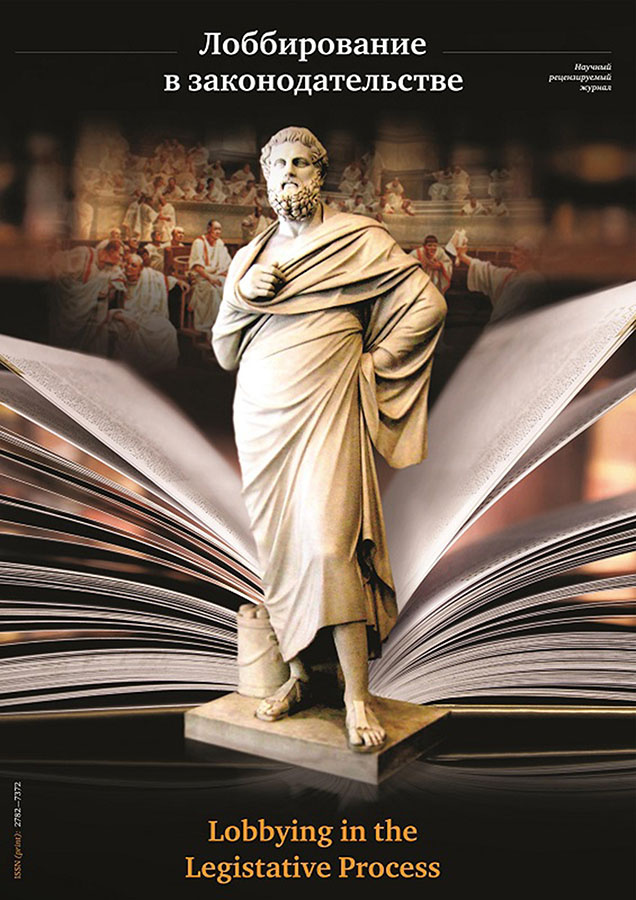About the role, significance and reliability of rankings and scorings in the field of artificial intelligence
- Authors: Belikova K.M.1
-
Affiliations:
- Kutafin Moscow State Law University (MSAL)
- Issue: Vol 4, No 3 (2025)
- Pages: 80-94
- Section: Private law (civil)
- URL: https://journals.eco-vector.com/2782-7372/article/view/694166
- DOI: https://doi.org/10.33693/2782-7372-2025-4-3-80-94
- EDN: https://elibrary.ru/ZNVIAK
- ID: 694166
Cite item
Abstract
The degree of development of relations regarding artificial intelligence has recently been subjected to increased rankings and scorings. Under these conditions, the article aims to review, study and analyze comparative assessments of the degree of such a development in Russia, foreign countries (China, USA) and their unions (European Union) in various ratings (scorings) in the field of relations with regard to artificial intelligence from the perspective of their role, importance and reliability. The author addresses the issue of the strength of rankings and scorings, studies and analyzes the Stanford Global AI Vibration Tool, Stanford AI Index and Oxford Readiness rankings for 2024–2025, noting other specialized rankings such as Bond and TAdviser. The author compares some basic characteristics of Russian systems which maintains a natural language dialogue (AI chatbots based on LLM) – Yandex`s Yandex GPT 5 Pro and Sber`s GigaChat 2.0 with each other and with Chinese (DeepSeek R1/V3, etc.) and American (GPT-4o, etc.) counterparts. The author outlines ways to improve Russia’s position in these rankings and provides some recommendations for the country. The author proceeds from the objective-subjective determination of the world, assuming the emergence of AI as part of objective reality and the objective process of human development. The scientific novelty, theoretical and practical significance is determined by the purpose of the research, the range of sources and problems studied. In the course of the research, the author concludes that the future belongs to hybrid AI architectures, such as the Hunyuan-T1 model from Tencent, taking into account the development of AI technologies based on principles such localization (adaptation to specific markets), development within the framework of international standards (common protocols), cross-learning (multilingual data) and compatibility (understanding different languages and cultures). Hybrid models will set the main vector of progress in the industry.
Full Text
About the authors
Ksenia M. Belikova
Kutafin Moscow State Law University (MSAL)
Author for correspondence.
Email: KMBelikova@msal.ru
ORCID iD: 0000-0001-8068-1616
SPIN-code: 2541-3498
Dr. Sci. (Law), Professor; Professor, Department of Entrepreneurial and Corporate Law
Russian Federation, MoscowReferences
- Lazarov A.A. The principle of reliability in social scoring. Legal World. 2022. No. 4. Pp. 36–39. (In Rus.)
- Lazarov A.A. The right to access information when using the social credit system (social scoring). Courier of Kutafin Moscow State Law University. 2022. No. 4 (92). Pp. 136–142. (In Rus.)
- Lazarov A.A. Legal regulation of social scoring in the field of public service: Russian and foreign experience. Information Law. 2020. No. 4. Pp. 41–44. (In Rus.)
- Belikova K.M. The global race for artificial intelligence: Regulatory and other acts governing the development and application of artificial intelligence in the United States of America. Lobbying in the Legislative Process. 2025. No. 3. Рр. 24–34. (In Rus.). doi: 10.33693/2782-7372-2025-4-3-24-34. EDN: ZKZKJX
- Belikova K.M. On the way to developing “strong” artificial intelligence in Russia and abroad: Some elements of strategies and legal regulation. Gaps in Russian Legislation. 2025. Vol. 18. No. 5. Pp. 58–66. (In Rus.). doi: 10.33693/2072-3164-2025-18-5-58-66. EDN: DZJHZS.
- Belikova K.M. et al. Legal regulation of new military technologies in the light of intellectual property legislation and the responsibility of a scientist in the BRICS countries. Monograph. K.M. Belikova (ed.). Moscow: MDM-Print, 2022. 528 p.
Supplementary files














